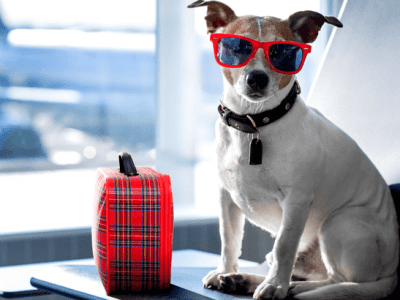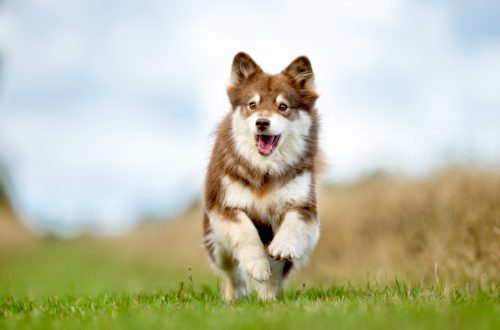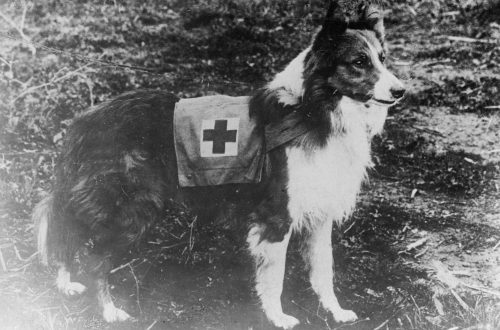
Do dogs feel guilt or shame?
Probably everyone has seen photos of shamed dogs in Internet collections next to the result of their outrages. No doubt dogs are masters at making themselves look guilty, but do they really feel guilty or ashamed? If the animal is really ashamed of its misbehavior, why then, if it turns away, does it again at the first opportunity? In this article, we will tell you if your dog really understands when he is being shamed.
Contents
Do dogs feel shame?
 There is no doubt that pets are capable of feeling basic emotions such as joy, sadness, and fear. But there is far less evidence that they experience so-called higher emotions such as guilt and shame, Scientific American claims. Higher emotions are much more complex, and researchers speculate that dogs simply don’t have the cognitive ability to process such complex feelings.
There is no doubt that pets are capable of feeling basic emotions such as joy, sadness, and fear. But there is far less evidence that they experience so-called higher emotions such as guilt and shame, Scientific American claims. Higher emotions are much more complex, and researchers speculate that dogs simply don’t have the cognitive ability to process such complex feelings.
learned behavior
Is your dog embarrassed? The truth is that there is no scientific evidence that dogs actually feel guilt or shame, but there is also no evidence to the contrary. And yet, the PBS News Hour reports that some studies, such as that conducted by Alexandra Horowitz, an assistant professor of psychology at Barnard College in New York, suggest that the guilty look in dogs when they are caught in the act is a learned reflex. on human reactions. In the study, animals behaved guilty when scolded by their owners, regardless of whether or not they actually did what they were scolded for. It is likely that dogs quickly learn that if their owners are unhappy with them, they can appease their people by looking sad.
Another study conducted by the University of Lorand Eötvös in Budapest, published in the magazine Applied Animal Behavior Science, confirmed these findings. The experiment was supposed to answer two questions: would “guilty dogs” that behaved badly greet their owners differently than those that behaved well, and could owners accurately tell from their greeting whether the pets had done something? The study found that not only were dog owners unable to accurately determine whether their charges were misbehaving, but, as in another study, both guilty and innocent dogs only looked ashamed when their owners assumed they were misbehaving and talked. with their pets respectively.
Does it make sense to shame a dog?
Your dog may not feel guilty about his misdeeds, but it is clear that he understands when you are unhappy with him. The problem is, she often has no idea why you’re angry, reports The Telegraph. Shaming a dog to prevent bad behavior won’t help if he doesn’t understand what he did wrong. Reprimanding a pet will only work if you do it either right at the time of the “crime” or right after it, so that he connects his behavior and the consequences, according to USA Today.
Is it bad to shame a dog?
 The tendency to shame a dog can do more harm than good. The problem is that what is interpreted as a guilty look is actually a sign of anxiety or fear, and shaming or scolding the animal will only add to its stress. In addition, it’s possible that many of the behaviors that make pets appear on guilty dog lists, such as chewing on things they shouldn’t or going to the bathroom in the wrong place, could be signs of an anxiety disorder or underlying health problems. such as urinary tract infections. Although it seems unlikely that your pet will be harmed in any way if you post a photo of him guilty looking on the internet for fun, it’s a good idea to discuss the unwanted behavior with your veterinarian, especially if it’s something exceptional or if it becomes chronic problem.
The tendency to shame a dog can do more harm than good. The problem is that what is interpreted as a guilty look is actually a sign of anxiety or fear, and shaming or scolding the animal will only add to its stress. In addition, it’s possible that many of the behaviors that make pets appear on guilty dog lists, such as chewing on things they shouldn’t or going to the bathroom in the wrong place, could be signs of an anxiety disorder or underlying health problems. such as urinary tract infections. Although it seems unlikely that your pet will be harmed in any way if you post a photo of him guilty looking on the internet for fun, it’s a good idea to discuss the unwanted behavior with your veterinarian, especially if it’s something exceptional or if it becomes chronic problem.
How to scold a dog? Ultimately, it’s important to keep in mind that if you scold or shame him for too long after the misbehavior itself, you’ll feel better, but it won’t make your dog feel guilty about his actions – it’ll just make him sad that you’re upset. So if you find tattered pillows or puddles on the floor when you get home, it’s best to consider additional training for your friend. If the misbehavior continues, you may want to check with your veterinarian to check on his health, or ask a behaviorist for advice on training. Dogs are pack animals and they see you as their leader. They want you to be happy, not angry, so just remember that they are not behaving badly on purpose or to annoy you. Remain calm and be sure to praise her for the right behavior rather than punishing her for the bad. Over time, the dog will begin to understand everything, and you will be able to further strengthen the relationship between you.





